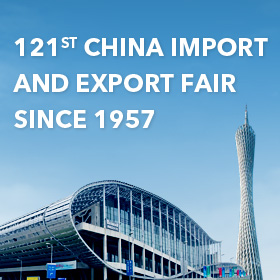Guangdong and UK agree projects worth $1.8 billion
A delegation from Southeast China's Guangdong province, led by provincial Party chief Hu Chunhua, hosted a business and trade convention in London on June 14 attended by 400 British enterprises where deals were signed worth $1.8 billion.
Hu also attended a launch ceremony for China General Nuclear Power Corporation's three new UK companies. The parent company is one of China's major nuclear power players.
Hu said 20 projects would be approved at the convention, which was attended by officials from the UK's Department for International Trade and senior executives from a raft of multinational companies.
The UK's innovation agent Innovate UK and the Guangdong government signed an agreement to match grant funding for UK businesses in the Chinese province.
For almost 40 years, Guangdong has been at the forefront of China's reform and opening-up. In 2016, the last complete year for which figures are available, the province's GDP reached $1.2 trillion, with a growth rate of 7.5 percent, one-ninth of China's total.
The UK has become Guangdong's largest export market in Europe, accounting for $17.65 billion in 2016, which was about a quarter of total trade between China and the UK.
By the end of 2016, accumulated mutual investment exceeded $4.2 billion, and more than 850 projects. In 2016, direct investment from the UK to the province increased three-fold, while Guangdong direct investment to the UK increased 17.7 times.
Lord Sassoon, chairman of the China-Britain Business Council and an executive board member of Hong Kong trading house Jardines, spoke at the conference to encourage UK companies to invest in the province.
"Guangdong is a good place to do business," Sassoon said. "The free-trade zone arrangements facilitate the transfer of goods. Guangdong has liberalized services in a way that has enabled us to set up our insurance business in the province."
He said Guangdong is home to some of the world's most innovative companies, including Huawei, Tencent, and automaker BYD, which is delivering 51 electric buses to London.
Greg Hands, minister of state in the Department for International Trade, said: "Never has the China-UK relationship been as strong as it is today, with such potential for growth. China is the UK's third-largest export market, with exports growing by 63 percent since we took office in 2010."
Liu Xiaoming, China's ambassador to the UK, told attendees: "Globally, the Guangdong economy is the 15th-largest in the world; that's the size of Spain."
He pointed out that several Guangdong companies had linked with the UK through major projects, including China General Nuclear, a partner in the Hinkley Point C nuclear power project.
Also at the summit, BYD agreed to help develop the UK's energy storage market with Avic International Renewable Energy Co. And TianAn Cyber Park Group agreed to establish a Guangdong Products Exhibition and Trade Center in the UK.
Several institutes signed agreements to collaborate, including University College London, which will work with Invest Shenzhen. Guangzhou University will work with Keele University. And Cardiff University will collaborate with Sun Yat-Sen Memorial Hospital.
The Bristol and the West of England China Bureau committed to help create an action plan regarding international exchanges.
And Pharmaceutical and healthcare company GSK and the Guangzhou Institute of Respiratory Diseases agreed to co-develop a "health big-data system"to serve 5,000 patients in China.

 Print
Print Mail
Mail 121st China Import and Export Fair
121st China Import and Export Fair Aerial views of Guangzhou’s overpasses
Aerial views of Guangzhou’s overpasses  Lychee culture festival revs up in Guangzhou
Lychee culture festival revs up in Guangzhou Dragon boat race highlights from Guangzhou
Dragon boat race highlights from Guangzhou Guangzhou soup
Guangzhou soup Intl dancers cha-cha in Guangzhou
Intl dancers cha-cha in Guangzhou